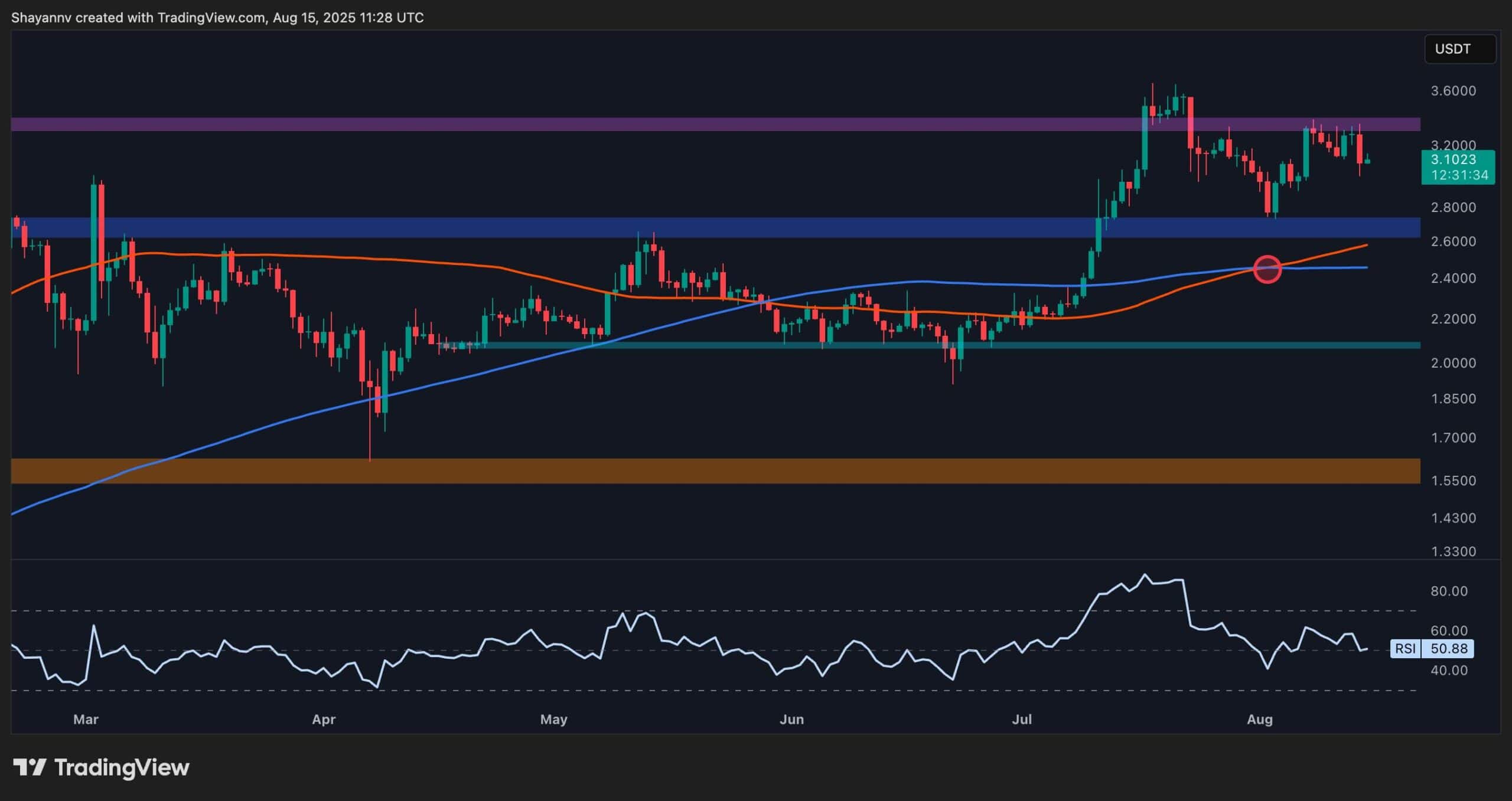Cryptocurrency
United Kingdom’s digital pound meets public backlash — Why?

British society is both civil and democratic, so it wasn’t unexpected that the government of the United Kingdom would “consult” the public before signing off on a digital version of the British pound. The response it received may have been surprising, though.
The public canvassing conducted jointly by His Majesty’s Treasury and the Bank of England between February and June of 2023 drew some 50,000 responses, and it unleashed a “public backlash,” according to The Telegraph — a U.K. newspaper — with “widespread public concern about privacy as well as anger over the possible consequences for cash.”
Not only could a digital pound, dubbed “Britcoin,” be used to surveil U.K. citizens, respondents feared, but it could also potentially destabilize the U.K. financial system because the digital pound would be easier for depositors to move out of commercial banks in times of crisis, promoting bank runs.
This latest pushback comes as many in the crypto sector continue to view central bank digital currencies (CBDCs) with suspicion — or as clumsy government attempts to snuff out private money, including decentralized cryptocurrencies.
Amid these concerns, it’s worth digging deeper into some of the public concerns brought to light in the most recent U.K. consultation. Are privacy and stability issues really a substantial risk for CBDCs in advanced Western economies? On the plus side, can state-issued digital currencies potentially advance financial inclusion? And are they really designed to put cryptocurrencies out of business?
Staying at the ‘forefront of technological change’
One can begin by asking why a digital pound is even needed, as some British parliamentarians recently asked. “In an increasingly digital society, the U.K. needs to keep pace with the speed of innovation that’s happening in the payments sector,” Ian Taylor, head of crypto and digital assets at KPMG UK, told Cointelegraph. “The Bank of England’s consultation into a proposed CBDC is a sensible approach to keep the UK at the forefront of technological change without committing yet to the substantial investment needed to roll out a digital pound.”
Others agreed that the U.K., like many countries around the world, is struggling to come to grips with an increasingly cash-free economy. “The government is attempting to strategically place itself to allow the use of digital currencies so it is able to compete with other regions on a global stage,” Cardiff University professor Nicholas Ryder told Cointelegraph. The biggest obstacle to a digital pound “would be public demand and whether we end up with a cashless society,” he added.
1/ Last week, we hosted a digital Pound use case roundtable discussion in London with Digital Pound Foundation members, with external participation and observation from @hmtreasury, @HMRCgovuk, @Visa, @FISGlobal, @NatWestGroup, @cityoflondon. pic.twitter.com/EMh8t3u4WW
— Digital Pound Foundation (@digitalpoundfdn) July 7, 2023
Still, good intentions probably won’t allay privacy concerns. With a CBDC, the government could arguably generate “vast amounts of data that would allow anyone — from government to third-party companies — to develop extensive profiles on the public and snoop on their spending more than ever before,” Susannah Copson at Big Brother Watch, told The Telegraph.
One of the project’s developers even cautioned that a digital pound “could be used to check shoppers’ ages or nationalities.” However, the developer also said that a digital pound would still be “more private than holding a bank account,” though not cash, according to the newspaper.
A real danger?
Concerns over a loss of privacy in commercial transactions with a digital pound are not entirely overblown, Annabelle Rau, financial regulatory lawyer at law firm McDermott Will & Emery, told Cointelegraph. “Like any form of digital currency, a CBDC would inherently have some level of traceability, which could increase surveillance.”
Still, with the right design and regulations, privacy can be maintained to a significant degree. “For instance, privacy-enhancing technologies, such as zero-knowledge proofs or differential privacy, can be incorporated to protect user identities and transaction details while still enabling regulatory oversight,” Rau added.
Eswar Prasad, Tolani senior professor of trade policy at Cornell University and author of the book The Future of Money, told Cointelegraph that a CBDC could indeed entail the loss of anonymity relative to the use of cash, “but central banks that are experimenting with CBDCs are adapting new cryptographic technologies to provide transaction anonymity, at least for low-value transactions.”
Risk of ‘deposit flight’?
Critics from the City of London, the U.K.’s financial hub, warned that a higher limit on Britcoin holdings — e.g., 20,000 pounds per individual — could destabilize the traditional banking system by facilitating bank runs or “deposit flight”’ from commercial banks.
But is this really a risk? “If a digital pound can be withdrawn instantly during times of economic instability, it could exacerbate financial crises,” said Rau.
Moreover, recent events, like the collapse of several regional banks in the United States following deposit flight, “have shone a spotlight on the heightened risks of bank runs in our increasingly digital financial landscape,” she added.
Holding limits could safeguard against such dangers, Rau conceded, but stricter limits on Britcoin holdings could, in turn, dampen public enthusiasm for the digital pound. “The optimal balance would likely involve a combination of limits, insurance schemes and regulatory oversight,” she added.
Cornell University’s Prasad agreed that CBDCs could elevate the risk of deposit flight from commercial banks in times of perceived crisis, adding:
“Preventing this possibility by capping the balances that can be maintained in CBDC digital wallets seems reasonable, but could also limit the use of a CBDC and hinder its widespread acceptance.”
Expanding access to financial services
Then there is the matter of financial inclusion, traditionally a big argument used in favor of CBDCs, especially in emerging markets.
In its February consultation paper, the U.K. government stated that financial inclusion “means that everyone, regardless of their background or income, has access to useful and affordable financial products and services such as banking, payment services, credit, insurance, and the use of financial technology,” declaring it an “important priority.”
According to Rau, “A retail ‘Britcoin’ could potentially boost financial inclusion, but the degree to which it would do so in the U.K. is debatable.” After all, the U.K. already has high levels of financial inclusion, with most adults having access to a bank account.
That said, “CBDCs could still enhance financial services for the underserved or those who prefer digital transactions. It could simplify transactions, reduce costs and provide access to digital economic participation to those who are still excluded from traditional banking,” she added.
An attempt to preempt crypto?
Not all view central bank digital currencies as benign instruments of inclusion, however. Some in the crypto community see CBDCs as an attempt to snuff out private money, including decentralized cryptocurrencies like Bitcoin (BTC). After all, one heard almost nothing about CBDCs until Facebook unveiled its Libra stablecoin proposal several years back.
“The emergence of decentralized cryptocurrencies such as Bitcoin, as well as stablecoins, has certainly catalyzed central banks’ interest in providing their own digital currencies, particularly as the use of physical currency fades away,” noted Prasad.
That said, “CBDCs are not necessarily intended to snuff out private digital currencies, but are seen as a way to keep central bank money relevant for retail and peer-to-peer transactions in a world where the use of physical currency for such transactions is plummeting.”
CBDCs may pose some competitive challenges to decentralized cryptocurrencies, added Rau, but it’s unlikely “that their primary purpose is to ‘snuff out’ such currencies.”
Sovereign governments are thinking more about digitizing their economies, not about threats from Bitcoin and other cryptocurrencies. Cardiff University’s Ryder largely agreed. CBDCs represent “an attempt by governments to enter the market, to offer a more enhanced product by ways of regulation,” while Rau further added:
“Moreover, the introduction of a CBDC could potentially legitimize the broader concept of digital currencies, which could indirectly benefit cryptocurrencies. That said, the relationship between CBDCs and private digital currencies will largely depend on specific regulatory decisions made in the future.”
In any event, the full-scale launch of a digital pound is still many years away — if ever. According to the Atlantic Council’s CBDC Tracker, a U.K. CBDC is still in its research stage — the least advanced CBDC development level.
It would still have to pass through a proof-of-concept stage — where Brazil, Russia, Turkey and some others now stand — and a pilot stage (France, China, Canada) before reaching actual launch (the Bahamas, Nigeria and a few other small countries). Even the decision on whether to move forward with a digital pound is “some years” away, the Bank of England’s deputy governor said in June.
‘A social decision’
Overall, “The benefits and challenges of introducing a digital pound need to be carefully considered,” KPMG UK’s Taylor said. Factors to take into account include “the fine balance between the inevitable decline in physical cash, the importance of ensuring as an economy we are being financially inclusive, and the current lack of consumer protection in the digital assets market.”
How long might all this take to achieve? Could it be accomplished before the end of the decade? “We are still a few years off until trials commence,” said Taylor. “The government’s objective is to ensure we are innovative and continue to lead the world on payments.”
“Striking a balance between privacy and necessary regulation — for important reasons like preventing money laundering — is a challenge all digital currencies face,” added Rau.
Perhaps the last word here belongs to Prasad, who identified the challenges involved in creating a central bank digital currency in a 2021 article, which arguably explains why economies in the U.S., the U.K. and elsewhere are proceeding so carefully:
“A digital dollar could threaten what remains of anonymity and privacy in commercial transactions — a reminder that adopting a digital dollar is not just an economic but also a social decision.”
Collect this article as an NFT to preserve this moment in history and show your support for independent journalism in the crypto space.
Cryptocurrency
Ethereum Foundation, Whales, and Hackers: What’s Driving the ETH Sell-Off?

TL;DR
- Whales, hackers, and the Ethereum Foundation wallets moved over $500M in ETH through large sales and withdrawals.
- Ethereum transfers rose to 4.6M ETH, nearing the monthly high of 5.2M recorded in July.
- Staking inflows hit 247,900 ETH, the highest in a month, locking more supply from trading.
Large Withdrawals and Whale Activity
Ethereum (ETH) has seen heavy movement from major wallets over the past few days. On-chain data from Lookonchain shows a newly created wallet pulled 17,591 ETH, worth $81.62 million, from Kraken in just two hours.
Over three days, two new wallets withdrew a combined 71,025 ETH, valued at $330 million, from the exchange.
One of these wallets, address 0x2A92, has withdrawn 53,434 ETH, worth $242.34 million, in two days. This includes a recent purchase of 30,069 ETH, valued at $138.46 million, during a market drop.
Major ETH Holders Offload Millions Amid Price Rally
In contrast, several separate entities have been disposing of some ETH holdings. A wallet tied to a hacker address 0x17E0 sold 4,958 ETH for $22.13 million at $4,463, securing a profit of $9.75 million. Earlier this year, the same address sold 12,282 ETH at $1,932 and later bought back part of the amount at higher prices.
A different whale sold 20,600 ETH for $96.55 million over the past two days, generating a profit of more than $26 million after holding the position for nine months.
Meanwhile, an Ethereum Foundation-linked wallet, 0xF39d, sold 6,194 ETH worth $28.36 million in the last three days at an average price of $4,578.
Recent sales from the same wallet included an additional 1,100 ETH and 1,695 ETH for over $12.7 million combined.
The #EthereumFoundation-linked wallet(0xF39d) sold another 1,300 $ETH($5.87M) at $4,518 ~11 hours ago.
Over the past 3 days, this wallet has sold a total of 6,194 $ETH($28.36M) at an average price of $4,578.https://t.co/4hfCWymHVG pic.twitter.com/ErUyEY8SJy
— Lookonchain (@lookonchain) August 15, 2025
Network Activity on the Rise
CryptoQuant data shows Ethereum’s total tokens transferred have been climbing since August 9. After ranging between 1 million and 3 million ETH through late July and early August, transfers have risen to 4.6 million ETH, approaching the monthly high of 5.2 million recorded in mid-July. This increase has occurred alongside a price rally from about $3,400 to $4,600.
Interestingly, staking inflows generally stayed between 20,000 and 80,000 ETH per day over the past month. On August 14, inflows jumped to 247,900 ETH, the highest in the period.
At the time, ETH was trading near $4,600. Large staking deposits reduce the amount of ETH available for immediate trading, as staked coins are locked for a set period.
In the meantime, ETH trades at $4,647 with a 24-hour volume of $68.25 billion, down 2% on the day but up 19% over the week.
Binance Free $600 (CryptoPotato Exclusive): Use this link to register a new account and receive $600 exclusive welcome offer on Binance (full details).
LIMITED OFFER for CryptoPotato readers at Bybit: Use this link to register and open a $500 FREE position on any coin!
Cryptocurrency
Massive DOGE Whale Activity Hints at $1 Breakout

TL;DR
- Whales bought two billion DOGE this week, lifting their combined holdings to 27.6 billion coins.
- A single 900M DOGE transfer worth $208M to Binance drew attention to large exchange movements.
- DOGE broke key resistance, with momentum building for a possible push toward the $1 price mark.
Price and Market Moves
Dogecoin (DOGE) traded at $0.23 at press time, slipping 4% over the past day but still showing a 2% gain for the week. Daily turnover came in at about $6.18 billion.
Meanwhile, the broader crypto market saw over $1 billion in liquidations. Hotter-than-expected US Producer Price Index data pushed traders to scale back expectations of a near-term Federal Reserve rate cut. DOGE had roughly 290,500 coins liquidated during the sell-off.
On the two-week chart, analyst Trader Tardigrade notes that DOGE has cleared a downward-sloping resistance line after completing what appears to be a “wave V” in an Elliott Wave sequence. Similar setups in the past, where prolonged declines stayed within falling channels before breaking higher, have been followed by sharp rallies.
$Doge/2-week#Dogecoin is gaining strong momentum to surge above $1 pic.twitter.com/TuSEKr19nv
— Trader Tardigrade (@TATrader_Alan) August 15, 2025
Momentum gauges are also turning up. The Stochastic RSI, which had dropped into oversold territory, is now heading higher. Previous reversals from this zone have coincided with sustained upward moves. The current formation points to a possible run that could carry DOGE past the $1 mark.
Heavy Whale Buying and Large Transfers
As reported by CryptoPotato, blockchain data shows large investors have added two billion DOGE in the past week, spending just under $500 million. That brings their holdings to about 27.6 billion coins, or 18% of the supply. The buying streak has prompted speculation within the community.
Recently, Whale Alert flagged a 900 million DOGE transfer worth about $208 million into Binance. The tracking indicates that it originated from a wallet connected to the exchange, likely as an internal activity. The address involved holds 2.88 billion DOGE, one of the largest balances on the network.
Ali Martinez also reports that transactions above $1 million reached a one-month high, with activity building since early August and peaking as DOGE traded at $0.25.
Whales are back! Dogecoin $DOGE activity at a 1-month high. pic.twitter.com/C83Pv68mCt
— Ali (@ali_charts) August 14, 2025
Sentiment Building
Analyst Gordon described the current setup as “a nice bit of consolidation” before a potential breakout, adding,
“This will be one of the first coins normies FLOCK to & the pump will be MASSIVE.”
With whale accumulation rising, high-value transfers increasing, and a bullish technical pattern in play, DOGE is positioned for a potential push toward $1 if momentum holds.
Binance Free $600 (CryptoPotato Exclusive): Use this link to register a new account and receive $600 exclusive welcome offer on Binance (full details).
LIMITED OFFER for CryptoPotato readers at Bybit: Use this link to register and open a $500 FREE position on any coin!
Cryptocurrency
Ripple Price Analysis: XRP at Risk as Key Support Levels Could Trigger Sharp Drop

XRP has recently entered a consolidation phase after a strong rally earlier this summer, with the price action now hovering around key resistance levels on both its USDT and BTC pairs. Yet, while momentum has slowed, the charts still indicate a generally bullish structure, with multiple key support levels remaining firmly in place.
Technical Analysis
By ShayanMarkets
The USDT Pair
On the XRP/USDT daily chart, the price is currently trading near the $3.10 mark, facing a strong resistance zone around $3.40. This follows a breakout above the $2.70 range in July, which has now flipped into a support area.
Both the 100-day and 200-day moving averages are also trending upward and recently formed a bullish crossover around $2.45, reinforcing the medium-term bullish sentiment. If the $3.40 resistance breaks, a push toward the critical $4.00 range becomes likely.
However, the RSI hovering near the neutral 50 level suggests a lack of strong momentum for now, meaning a short-term pullback into the $2.80 support zone is still possible.
This zone will be key for maintaining the bullish structure. Losing it could open the door for a deeper correction toward the 200-day moving average located around the $2.40 mark. Yet, as long as the price stays above the moving averages, the broader trend remains bullish.
The BTC Pair
Looking at the XRP/BTC chart, the pair has recently pulled back after hitting the 3,000 SAT resistance, with the price currently around 2,600 SAT.
This follows a clean breakout above the long-term descending channel and a successful retest of its upper boundary, which coincided with the 200-day moving average and the 2,400 SAT support zone. This confluence remains a key bullish technical factor, as holding above it could attract renewed buying pressure.
That said, RSI levels around 48 show that momentum has cooled after the sharp July rally, meaning XRP may continue ranging between 2,400 SAT and 3,000 SAT in the near term. A decisive close above 3,000 SAT would likely open the path to the 3,400 SAT zone, while losing 2,400 SAT could shift the bias back toward 2,000 SAT support. For now, the structure still favors the bulls as long as higher lows remain intact.
Binance Free $600 (CryptoPotato Exclusive): Use this link to register a new account and receive $600 exclusive welcome offer on Binance (full details).
LIMITED OFFER for CryptoPotato readers at Bybit: Use this link to register and open a $500 FREE position on any coin!
Disclaimer: Information found on CryptoPotato is those of writers quoted. It does not represent the opinions of CryptoPotato on whether to buy, sell, or hold any investments. You are advised to conduct your own research before making any investment decisions. Use provided information at your own risk. See Disclaimer for more information.
Cryptocurrency charts by TradingView.

 Forex4 years ago
Forex4 years agoForex Today: the dollar is gaining strength amid gloomy sentiment at the start of the Fed’s week

 Forex3 years ago
Forex3 years agoUnbiased review of Pocket Option broker

 Forex3 years ago
Forex3 years agoDollar to pound sterling exchange rate today: Pound plummeted to its lowest since 1985

 Forex4 years ago
Forex4 years agoHow is the Australian dollar doing today?

 Cryptocurrency4 years ago
Cryptocurrency4 years agoWhat happened in the crypto market – current events today

 World3 years ago
World3 years agoWhy are modern video games an art form?

 Commodities3 years ago
Commodities3 years agoCopper continues to fall in price on expectations of lower demand in China

 Economy3 years ago
Economy3 years agoCrude oil tankers double in price due to EU anti-Russian sanctions























